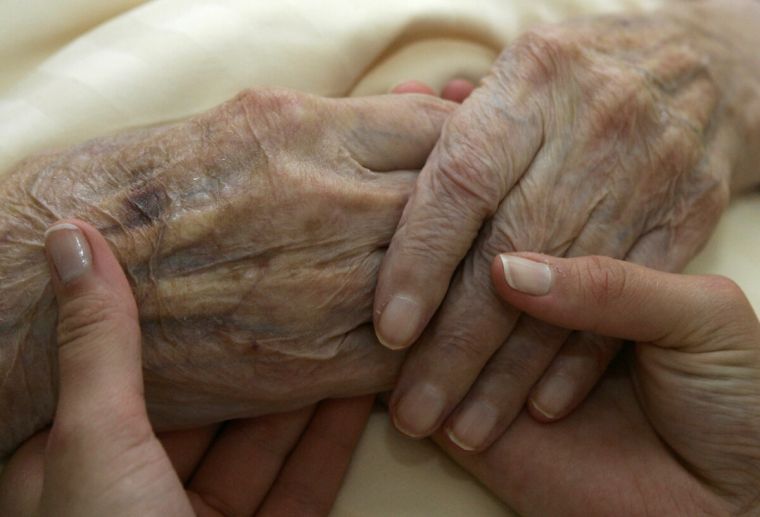A million older people are isolated and hungry. It's a scandal, but the church can help
A new report to parliament by a cross-party group of MPs says as many as 1 million older people are starving in their homes because of loneliness and isolation.
The report from the All-Party Parliamentary Group for Hunger said some malnourished older people have entered hospital weighing five-and-a-half stone, with an infection or following a fall, which kept them there for several days, if not weeks.

The report quotes a woman in her 80s whose husband went into a care home with dementia. The district nurse who'd been visiting her husband to help with food stopped coming, and with no one else visiting, the woman did not eat a proper meal for nine weeks. She went unnoticed until a neighbour came over two months later.
A man in his 90s was banned from his local supermarket because he fell twice and was an insurance risk – so he was unable to buy food.
The report follows an announcement that the government is appointing a minister to tackle loneliness, recommended by the Jo Cox Commission on Loneliness. Around 9 million people in the UK, mainly elderly and disabled adults, live very solitary, lonely lives.
Ten years ago, Meals on Wheels helped around 155,000 people. For many this was their only point of contact with another human being. The services were mainly run by volunteers who were also befrienders, keeping an informal eye on frail older people. Today they are far fewer, as funding has been reduced, and now only 29,000 people receive Meals on Wheels.
Another resource that has largely disappeared are the local authority day centres, where people used to meet and have a cup of tea and a chat. These had to be closed because council budgets were slashed, amid warnings that adult social services are on the point of collapse.
The good news is that all over the country churches are working hard to reach the lonely in their communities. They are organising an entire range of activities, opening their doors for lunch clubs and activities of all types – anything that meets the need. They are usually funded by the churches and run by volunteers who are often retired and older themselves.
In March, at a Pilgrims' Friend Society conference at Romford Baptist Church, one of the speakers will describe an effective community outreach programme run by churches working together in the north. It is attracting more volunteers and the support of social services and the local police, who refer people for befriending. It's also attracted some charitable funding.
Wouldn't the new minister for loneliness be wise to consider allocating funds to churches already doing such valuable work?











